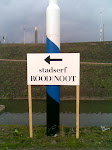[…] While Bernhard is certainly sui generis, he is also part of a tradition of inspired twentieth-century monologists that includes, among others, the aforementioned Proust, Céline, Beckett, Sartre, Camus, and Bove. Each of these writers, in turn, drew upon the example of Dostoyevsky’s dark and masterful nineteenth-century monologue Notes From Underground—perhaps the work that most influenced both Bernhard and the course of twentieth-century fiction in general. From its outset with Dostoyevsky, the extended monologue has been both intellectually and emotionally subversive and steeped in both psychological and physical illness. Notes From Underground begins with Dostoyevsky’s protagonist announcing his sickness, and Rudolf, the narrator of Bernhard’s most exemplary novel, Concrete, proclaims in his first sentence "the third acute onset of my sarcoidosis." That’s but the first of many parallels between the two novellas. Both the Underground Man and Rudolf are middle-aged men living in isolation—simultaneously sick and hypochondriacal. Moreover, Dostoyevsky and Bernhard immediately reveal that their protagonists’ monologues come from actual documents they are writing which describe their own maladies, as well as those that plague mankind in general. In today’s parlance we would probably classify them as obsessive-compulsives whose confessions are written because of their inability to act decisively on other fronts. […]
lees hele essay
skip to main |
skip to sidebar
dit blog is speciaal voor studenten (acteurs & makers) van de faculteit Theater van de Hogeschool voor de Kunsten Utrecht opgezet. Er zullen vooral dramaturgie en theatergeschiedenis gerelateerde onderwerpen worden aangeboden met de nodige associatieve elementen en anderszins. Logboekhouder: Peter Kolpa (theoriedocent 2e jaar HKU faculteit Theater en lid van stadserf Rood|Noot).
leesclub LIJST - archief
2010/2011
1 Zes personages op zoek naar een auteur (Luigi Pirandello)
2 Stuk zonder titel (Federico Garcia Lorca) + Pitten (Herman Heijermans)
3 Baal (Bertolt Brecht)
4 Woyzeck (Georg Büchner)
5 Het leven is droom (Calderón)
6 Eindspel (Samuel Beckett)
7 De moed om te doden (Lars Norén)
8 Droomspel (August Strindberg)
9 (Heilige) Oorlog (Rainald Goetz)
10 Reigen (Arthur Schnitzler) + Crankybox (Judith Herzberg)
11 Dantons Dood (Georg Büchner)
12 Oh Dad, poor Dad, mamma's hung you in the closet and I'm feeling so sad (Arthur L. Kopit)
13 Torquato Tasso (Johann W. von Goethe)
14 Othello (William Shakespeare)
15 De koning sterft (Eugène Ionesco)
16 De rit over het bodenmeer (Peter Handke)
17 Rosencrantz & Guildenstern are dead (Tom Stoppard)
18 De hoeksteen (Gerardjan Rijnders)
19 Who's afraid of Virginia Woolf (Edward Albee)
20 De Bruiloft, Langs de Grote Weg en meer (Anton Tsjechov)
2011/2012
21 Don Carlos (Friedrich Schiller)
22 De Theatermaker (Thomas Bernhard)
23 Anatol (Arthur Schnitzler)
24 Measure for measure (William Shakespeare)
25 Rhinoceros (Eugène Ionesco)
2013/2014
26 Ritter Dene Voss (Thomas Bernhard)
27 Anatol (Arthur Schnitzler)
28 Torquato Tasso (Johann W. von Goethe)
29 Woyzeck (Georg Büchner)
30 Baal (Bertolt Brecht)
31 Platonov (Anton Tsjechov)
32 Rosencrantz and Guildenstern are dead (Tom Stoppard)
33 In de eenzaamheid van de katoenvelden (Bernhard-Marie Koltes)
34 Kras (Judith Herzberg)
2014/2015
35 Baal (Bertolt Brecht)
36 Gedichten (Allen Ginsberg)
37 Eindspel (Samuel Beckett)
38 Geslacht (Rob de Graaf)
39 Anatol (Arthur Schnitzler)
leeskabinet LIJST - archief
1 De kersentuin (Anton Tsjechov)
2 De president (Thomas Bernhard)
3 De eenzame weg of de egoïsten (Arthur Schnitzler)
(toneel)auteurs
(toneel)gezelschappen
- 't barre land
- abatoir fermé (vlaams)
- aluin
- bambie
- boogaerdt & van der schoot
- boukje schweigman
- carver
- de appel
- de roovers (vlaams)
- de warme winkel
- dood paard
- dus (de utrechtse spelen)
- hans hof ensemble
- het toneelhuis (vlaams)
- hotel modern
- ivana müller
- jakop ahlbom
- keessen & co
- maatschappij discordia
- mightysociety
- mug met de gouden tand
- nnt (noord nederlands toneel)
- ntg(ent) (vlaams)
- nut (nieuw utrechts toneel)
- oostpool
- orkater
- ot (onafhankelijk toneel)
- ro theater
- skagen (vlaams)
- stadserf rood|noot
- stan (vlaams)
- theater ea
- toneelgroep amsterdam
- van houts & de ket
- wunderbaum
- zuidelijk toneel
bezoek ook:
- 8weekly (kunsttijdschrift)
- alles over cinema
- de papieren man
- digitale bibliotheek nederland
- domein voor kunstkritiek
- dw b (vlaams literair tijdschrift)
- filmtheater 't hoogt
- last fm (muziek)
- loek zonneveld (recensent)
- moose (over theater enz)
- nieuwe toneelbibilotheek
- nieuwste popmuziek (vpro luisterpaal)
- personenencyclopedie
- robbert van heuven blog
- rood|noot blog
- schift (cultuur tijdschrift)
- site over kunst(enaars) - aanbevolen!
- theaterinstituut
- theaterschrift lucifer
archief
-
▼
2011
(140)
-
▼
oktober
(20)
- documentaire over johan simons
- arthur schnitzler - anatol
- arthur schnitzler
- arthur schnitzler
- arthur schnitzler
- thomas bernhard
- thomas bernhard - de theatermaker - uitleg en inte...
- thomas bernhard - de theatermaker - inhoud
- das literarische quartett - folge 05 - 10.03.1989
- zum 80. geburtstag von thomas bernhard
- thomas bernhard
- reading thomas bernhard - richard burgin
- r.a.f. - rote armee fraktion
- tekst van de president
- interview met thomas bernhard
- thomas bernhard - de president
- thomas bernhard
- 1 morgen = 6 hont (09.09.11) compilatie
- 1 morgen = 6 hont (16.09.11) compilatie
- friedrich schiller (1/4) idealist, nationalist, re...
-
▼
oktober
(20)

.jpg)

